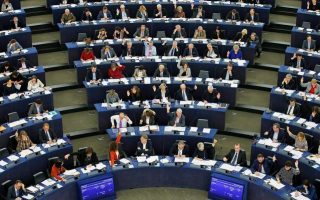Forty-five billion euros from EU fund could raise Greece to next level

The next five years could prove pivotal for the Greek economy as the government seeks via its National Recovery and Sustainability Plan to utilize resources from the European Union’s Recovery Fund amounting to 32 billion euros – which could reach €45 billion together with private funds – and power the country’s GDP to a new level.
At the forefront of the Greek proposals is the bid to boost private investment with the allocation of €12.6 billion of loans, as well as €4 billion in grants from the Recovery Fund, according to yesterday’s presentation by Deputy Finance Minister Theodoros Skylakakis of the draft, which has been submitted to the European Commission and is now under consultation.
The plan foresees private investment loans which will be complemented by at least equal participation of entrepreneurs and bank lending.
The reforms include incentives for partnerships and mergers of small and medium-sized enterprises to increase the size of Greek companies, as well as a new legal framework for urban business partnerships.
Moreover, €6.2 billion in grants will go toward the green transition and €2.1 billion for the digital transition, in line with the priorities set by the EU. Another €4.1 billion euros is earmarked for employment, skills development and social cohesion.
Apart from the options that align with the direction of the Pissarides report, the plan foresees the combination of investment with reforms, in adherence to the philosophy of the Recovery Fund. According to Deputy Minister to the Prime Minister Akis Skertsos, more than 60 reforms are included. The proposals include the development of a capitalized system of auxiliary insurance, a central choice for the government, but also tax incentives for private insurance programs.
A framework of benefits for the unemployed is also included, with incentives that aim to discourage inactivity, but also investments and reforms to provide equal opportunities for all, regardless of gender, nationality, sexual orientation, age or disability.
The basic core of the program stipulates green and digital transitions, employment, skills and social cohesion, as well as investments and institutional transformation. Projects include, among a long list, the interconnection of Crete and the Cyclades with the mainland’s power grid, the simplification of renewable energy system licensing procedures, the installation of fiber-optic infrastructure in buildings, as well as a 5G network on Greek highways.
Other aims include tax incentives for the digitization of companies, the electronic interconnection of cash registers with the tax authorities, and the use of artificial intelligence to facilitate tax audits.





